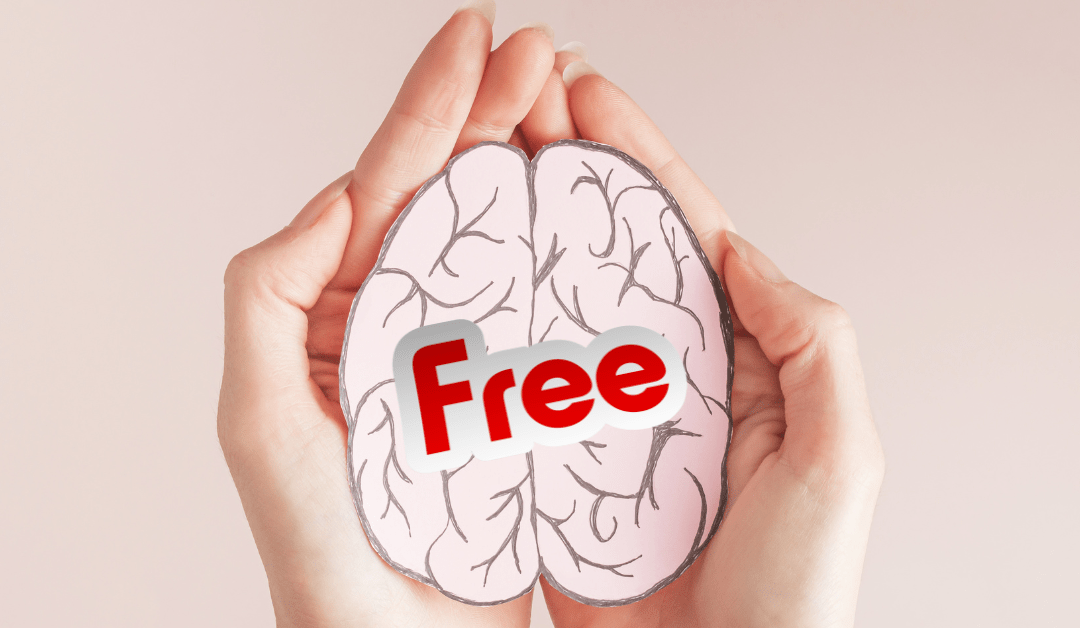Navigating the mental health landscape can feel like traversing a maze—especially when you’re doing it on a tight budget! As MANY of us are. If you’re feeling overwhelmed, anxious, or simply need someone to talk to, it’s essential to know that support is out there. Fortunately, many free mental health resources are available so you can find the support you need without breaking the bank.
That’s what this blog is for. We’ll explore some fantastic options, ensuring that help is accessible without putting a strain on your wallet. Let’s get started.
Understanding the Importance of Accessible Mental Health Care
Mental health is just as crucial as physical health, yet access to quality mental health care often comes with a price tag.
For many low-income individuals, the financial burden can make it nearly impossible to seek help.
This lack of access can lead to a worsening of mental health issues, creating a cycle of distress that feels inescapable.
The good news?
There are numerous free mental health resources designed to help you take that first step toward healing and support. Whether you’re dealing with anxiety, depression, or just need someone to listen, these resources can make a difference.
Free Mental Health Resources
- Community Health Clinics
Community health clinics often provide a range of services, including free or low-cost mental health care. These clinics are typically staffed by trained professionals who understand the unique challenges faced by low-income individuals. Many offer counseling services, support groups, and even medication management, all on a sliding fee scale based on income. - Nonprofit Organizations
Various nonprofit organizations focus on providing mental health support to underserved communities. Organizations like the National Alliance on Mental Illness (NAMI) and Mental Health America (MHA) offer helplines, educational resources, and local support groups. These nonprofits aim to reduce stigma and provide support for those navigating mental health challenges, often at no cost. - Crisis Hotlines
Sometimes, you need immediate support, and crisis hotlines are a fantastic resource. The National Suicide Prevention Lifeline (1-800-273-TALK) offers 24/7 access to trained counselors who can provide support and guidance in times of crisis. Additionally, the Crisis Text Line allows you to text “HELLO” to 741741 to connect with a trained crisis counselor. These services are completely free and confidential. - School-Based Mental Health Services
If you’re a student or the parent of one, don’t overlook the mental health services offered at schools. Many schools have counselors available to provide support and resources, especially for students facing emotional or behavioral challenges. These services are typically free and can make a significant difference in a young person’s life. - Online Support Groups and Forums
The internet is filled with support groups and forums dedicated to mental health topics. Websites like 7 Cups provide free, anonymous online chat with trained listeners and online therapy options. Community forums can offer a space to connect with others who share similar experiences, making you feel less isolated in your struggles. - Teletherapy Options
In recent years, teletherapy has become a popular option for accessing mental health care. Many organizations and therapists offer sliding scale fees, and some may even provide free services based on your financial situation. Check platforms like Open Path Collective, which connects individuals with affordable therapy options, or look for local therapists who offer teletherapy on a pro-bono basis. - Employee Assistance Programs (EAPs)
If you’re currently employed, check to see if your workplace offers an Employee Assistance Program. EAPs provide free, confidential counseling and resources for employees dealing with personal or work-related issues. This can be a valuable resource for navigating mental health challenges without the financial burden. - Medicaid Paid Therapy mployee
If you qualify for Medicaid, the program will cover 100% of you out of pocket costs for mental health therapy. We proudly accept Medicaid at Life’s Hope to expand mental healthcare access to low income individuals. If you live in Colorado, contact us today about starting therapy for better mental health.
The Power of Community and Connection
While the resources listed above can provide essential support, it’s crucial to remember that connection is also vital for mental health.
Reach out to family, friends, or community members who can lend a listening ear or support you on your mental health journey. Building a strong support network can definitely help you feel more empowered and less alone.
Taking the First Step
If you’re feeling overwhelmed or unsure of where to start, know that you’re not alone.
Taking the first step toward mental wellness can be daunting, but utilizing free mental health resources can ease that journey.
FAQs About Free Mental Health Resources
- Are there truly free mental health resources available?
Yes!
Numerous organizations, clinics, and hotlines provide free mental health resources for those in need, ensuring that everyone has access to support.
- How do I find a community health clinic near me?
You can search online for community health clinics in your area or check with local health departments to find options that offer mental health services.
- What should I expect during my first counseling session?
Your first session typically involves discussing your concerns, goals, and any relevant background information. It’s a chance for you to build rapport with your counselor and set the stage for future sessions.
- Can I access online therapy for free?
While many platforms offer affordable therapy, some provide free chat support or low-cost options based on your financial situation. Research different platforms to find one that suits your needs.
- How can I support someone else who may need mental health resources?
Encourage them to reach out for help, share available resources, and offer to accompany them to appointments if they feel comfortable.
Just being there for someone can make a significant difference.
Conclusion
Accessing mental health care shouldn’t be a luxury reserved for those with deep pockets.
With numerous free mental health resources available for low-income individuals, it’s possible to find the support you need without breaking the bank.
It’s always okay to ask for help, and there’s no shame in seeking support. You deserve to feel better, and with the right resources, a brighter future is within reach.

